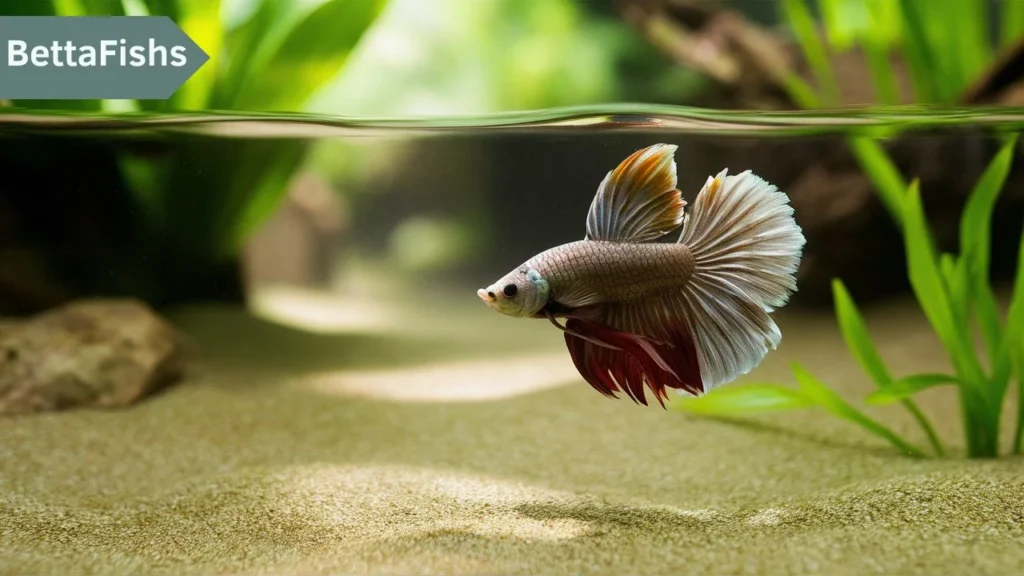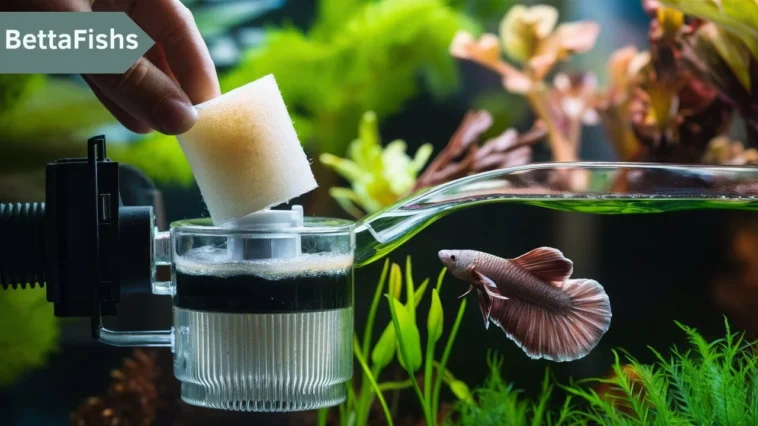The vivid colors and distinct personalities of betta fish, commonly referred to as Siamese fighting fish, make them one of the most sought-after aquarium pets. However, there’s a common question among betta fish owners: “Can a filter kill a betta fish?”
While filters are essential for maintaining clean and healthy water in most aquariums, their impact on betta fish can be a bit more complicated. This article will explore the relationship between betta fish and filters, addressing concerns and providing guidance on how to create a safe environment for your betta.
Betta Fish and Their Environment
Natural Habitat of Betta Fish
Betta fish are native to the slow-moving waters of Southeast Asia, particularly in Thailand, Cambodia, and Vietnam. In the wild, they thrive in shallow rice paddies, ponds, and slow-moving streams. These environments have minimal water movement, which is why bettas are adapted to living in still or slow-flowing waters.
Sensitivity of Betta Fish to Water Flow
Given their natural habitat, betta fish are not accustomed to strong water currents. They have long, delicate fins that can easily be damaged by intense water movement. Additionally, bettas are labyrinth fish, meaning they can breathe air directly from the surface, which allows them to survive in low-oxygen environments. A strong current can make it difficult for them to swim and reach the surface, leading to stress and exhaustion.
Ideal Water Conditions for Betta Fish
Betta fish thrive in warm, clean water with a temperature range of 76-82°F (24-28°C). The water should be slightly acidic to neutral, with a pH between 6.5 and 7.5. Maintaining these conditions is crucial for their health and well-being, and a filter can help achieve this—if used correctly.
The Role of Filters in Aquariums
Purpose of Using a Filter
Filters are vital in aquariums because they help maintain water quality by removing waste, uneaten food, and harmful chemicals. They also promote the growth of beneficial bacteria that break down toxic substances like ammonia and nitrites. For most fish, including bettas, clean water is essential for preventing diseases and promoting overall health.
Types of Filters Available
There are several types of filters available for aquariums, including:
- Hang-On-Back (HOB) Filters: Popular for their ease of use, these filters hang on the back of the tank and provide mechanical, chemical, and biological filtration.
- Sponge Filters: Gentle and suitable for small tanks, sponge filters are air-driven and provide biological and mechanical filtration.
- Internal Filters: Placed inside the tank, these filters are compact and often used in smaller aquariums.
- Canister Filters: External filters that are powerful and efficient, usually used for larger tanks.

How Filters Work
Filters operate by drawing water through various media that trap debris, break down toxins, and neutralize harmful chemicals. The water is then returned to the tank, creating a continuous cycle of filtration. The key is to ensure that the filter provides adequate filtration without creating too much water movement, especially in a betta fish tank.
Signs of Stress in Betta Fish Due to Filters
A betta fish that is stressed by a filter may exhibit the following signs:
- Excessive Hiding: The fish may spend more time hiding behind decorations or plants to escape the current.
- Lethargy: The fish may appear tired or weak, swimming slowly or resting more than usual.
- Frayed Fins: The delicate fins may become torn or ragged due to being buffeted by the water.
- Difficulty Breathing: The fish may struggle to reach the surface for air, gasping more frequently than normal.
Choosing the Right Filter for a Betta Fish Tank
Factors to Consider When Selecting a Filter
When choosing a filter for a betta fish tank, consider the following factors:
- Tank Size: The size of the tank will determine the type and power of the filter needed.
- Flow Rate: Opt for a filter with an adjustable flow rate to control the water movement.
- Noise Level: Choose a quiet filter to avoid stressing the fish with constant noise.
- Ease of Maintenance: A filter that is easy to clean and maintain will ensure consistent water quality.
Best Types of Filters for Betta Fish
The following types of filters are generally recommended for betta fish tanks:
- Sponge Filters: Gentle and effective, sponge filters provide adequate filtration without creating a strong current.
- Internal Filters with Adjustable Flow: These allow for better control of the water movement, making them suitable for bettas.
- Hang-On-Back Filters with Flow Control: When set to the lowest setting, these filters Adding Sponge Filters or Flow Reducers
Sponge filters are an excellent choice for betta tanks because they are gentle and effective. Additionally, using a flow reducer on a standard filter can help minimize water movement while still maintaining filtration.
Positioning the Filter for Minimal Impact
Place the filter in a way that causes the least disruption to the water surface. Positioning it near the back or in a corner can help reduce the impact of the flow on your betta fish.
What to Do if Your Betta Fish Is Stressed by the Filter
Immediate Steps to Take
If you notice signs of stress in your betta, take immediate action:
- Turn Off the Filter: Temporarily turn off the filter to allow the betta to recover.
- Reduce the Flow: Adjust the filter’s settings or use a flow reducer to lessen the current.
- Provide Hiding Spots: Add more plants or decorations to give the betta places to rest away from the flow.
Adjusting or Replacing the Filter
If the filter continues to cause stress, consider replacing it with a more suitable option, such as a sponge filter or a low-flow internal filter.
Creating a Safe and Comfortable Environment
Ensure the tank is well-planted with plenty of hiding spots and calm areas. Regularly check the water parameters to maintain optimal conditions for your betta fish.
Additional Tips for Maintaining a Betta Fish Tank
Regular Water Changes
Perform regular water changes to keep the water clean and free of toxins. This will reduce the load on the filter and provide a healthier environment for your betta.
Maintaining Consistent Water Temperature
Use a reliable heater to maintain a stable water temperature within the ideal range for bettas. Sudden temperature fluctuations can cause stress and illness.
Balancing Oxygen Levels Without Overpowering Flow
Ensure adequate oxygenation in the tank by using gentle aeration methods, such as an air stone or a low-flow filter, to avoid creating too much water movement.
Common Myths About Betta Fish and Filters
“Betta Fish Don’t Need a Filter”
While betta fish can survive in still water, they thrive in a clean, filtered environment. A filter helps maintain water quality and reduces the frequency of water changes.
“Filters Always Harm Betta Fish”
Not all filters are harmful to bettas. The key is choosing the right filter and adjusting it to create a suitable environment for your fish.

“Betta Fish Prefer Stagnant Water”
Betta fish do not prefer stagnant water; they need clean, well-oxygenated water. However, they do prefer calm water with minimal flow, which can be achieved with the right filter setup.
Conclusion
In conclusion, while a filter is essential for maintaining water quality in a betta fish tank, it’s important to choose and modify the filter to ensure it doesn’t harm your betta. By selecting the right filter and adjusting it to create a gentle flow, you can provide a clean and comfortable environment for your betta fish. Regular monitoring and maintenance will further ensure your betta’s health and well-being.
FAQs
1. How can I tell if my betta fish is stressed by the filter?
Look for signs such as excessive hiding, lethargy, frayed fins, and difficulty reaching the surface. If you notice these behaviors, it may be necessary to adjust or replace the filter.
2. Can betta fish live without a filter?
While betta fish can survive without a filter, using one helps maintain water quality and reduces the need for frequent water changes, contributing to a healthier environment.
3. What is the best type of filter for a betta fish tank?
Sponge filters and low-flow internal filters are generally the best options for betta tanks, as they provide adequate filtration without creating a strong current.
4. How often should I clean my betta fish’s filter?
It’s recommended to clean the filter every 2-4 weeks, depending on the tank size and bio-load. Regular cleaning ensures optimal filter performance and water quality.
5. Is it necessary to use a filter in a small betta tank?
Even in small tanks, a filter is beneficial for maintaining water quality. However, it’s important to choose a gentle filter suitable for the tank size to avoid stressing the betta.





One Comment
Leave a ReplyOne Ping
Pingback:Can Betta fish get depressed?